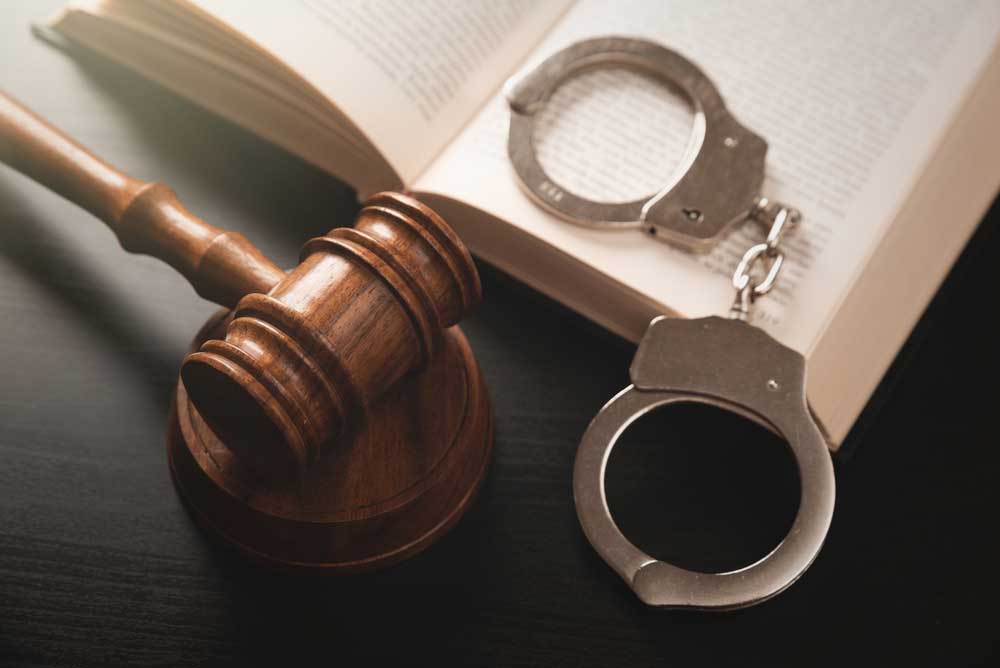Unveiling the Expertise and Jobs of an Appellate Attorney
In the elaborate realm of appellate legislation, the function of a lawful professional takes on a distinct type calling for specialized abilities and experience. An appellate lawful specialist is charged with a myriad of obligations that go past the conventional techniques of litigation. flint michigan appeal lawyer.
The Role of an Appellate Legal Specialist
In the realm of appellate law, the function of an appellate lawful expert is crucial in navigating the intricacies of greater court procedures and advocating for customers looking for appellate review. Appellate lawyers focus on dealing with situations on allure, where the focus shifts from facts and proof presented at trial to lawful disagreements and procedural concerns. Their primary duty is to review test documents, identify lawful errors, carry out lawful study, draft persuasive briefs, and present oral disagreements prior to appellate courts.
In addition, appellate lawful specialists serve as tactical advisors to test lawyers, directing them on maintaining lawful issues for potential appeal and establishing strong lawful debates throughout the test procedure - post conviction lawyer. In addition, appellate lawyers play an important function in shaping the legislation by advocating for lawful principles that can set precedents impacting future cases.
Essential Skills for Appellate Job
Effectiveness in legal evaluation and argumentation is fundamental for success in appellate work. Appellate attorneys must possess outstanding study skills to explore situation regulation, statutes, and lawful precedents to create persuasive lawful arguments. They should have a deep understanding of step-by-step policies and court guidelines to browse the intricacies of the appellate process successfully. Composing abilities are extremely important, as appellate work needs preparing clear, concise, and compelling legal briefs that verbalize complicated legal problems persuasively. Attention to detail is crucial in appellate job, as even minor mistakes can have considerable consequences on the result of a case.
In addition, crucial thinking abilities are important for appellate legal professionals to analyze legal techniques, prepare for counterarguments, and identify weak points in opposite advice's settings. In significance, a successful appellate lawful specialist has an unique mix of logical, study, composing, and campaigning for skills to excel in the appellate field.
Crafting Persuasive Legal Briefs
Provided the fundamental relevance of exceptional research study abilities and a deep understanding of step-by-step policies for success in appellate work, crafting persuasive lawful briefs stands as a critical job for appellate lawful experts. Legal briefs serve as the key tool for presenting debates and lawful evaluation to appellate courts - mesquite texas appeals attorney. To craft a persuasive legal brief, appellate professionals should thoroughly structure their debates, mention pertinent lawful authority, and prepare for and counter potential counterarguments
The influential power of a lawful brief lies in its ability to plainly and persuasively articulate the lawful concerns, analyze important case legislation, and use the regulation to the truths of the instance available. Appellate attorneys need to show an eager capability to distill complicated lawful ideas right into compelling and succinct disagreements that sustain their see customer's placement. Furthermore, crafting a convincing lawful short entails not just presenting a cogent legal argument but also weaving an engaging narrative that engages the visitor and strengthens the desired end result. Mastering the art of crafting persuasive lawful briefs is essential for appellate legal professionals looking for success in supporting for their customers prior to appellate courts.

Preparing for Oral Disagreements
An important element of the appellate process includes comprehensive preparation for providing oral disagreements prior to the court - post conviction lawyer. Getting ready for dental disagreements calls for a detailed understanding of the case, familiarity with legal precedents, and the capacity to prepare for and react to concerns from the courts. Appellate lawyers should meticulously evaluate the document, identify key legal issues, and craft influential debates to support their client's placement
Previous to the oral disagreement, lawyers need to take part in moot court exercises to replicate the court experience and get feedback on their presentation. This practice allows them to improve their arguments, improve their distribution, and enhance their ability to deal with difficult inquiries successfully.

Navigating the Appeals Process
Efficiently navigating the appeals process calls for a critical understanding of procedural regulations and timelines within the appellate court system. The process generally starts with submitting a notification of appeal within a defined duration after a final judgment is gone into at the test court degree (houston texas criminal appeal lawyer). When the notification of appeal is submitted, the appellant needs to after that set up the document on appeal, which includes appropriate records, transcripts, and shows from the test court procedures

Throughout this procedure, appellate lawyers must comply with strict step-by-step rules and deadlines to ensure their arguments are listened to and considered by the appellate court. By mastering these ins and outs, legal professionals can effectively browse the charms process and supporter for their clients' interests.
Conclusion
To conclude, the competence and jobs of an appellate legal specialist are vital in navigating the complex charms process. With important skills in crafting influential lawful briefs and getting ready for dental debates, these professionals play an important function in promoting for customers in appellate court. By comprehending the subtleties of appellate work and possessing the necessary abilities, appellate lawful specialists are equipped to effectively stand for customers in the charms procedure.
Moreover, appellate lawful professionals offer as calculated advisors to test attorneys, directing them on maintaining legal concerns for possible appeal and creating strong lawful disagreements throughout the trial procedure. Appellate legal specialists need to have remarkable study skills to delve right into situation legislation, laws, and legal precedents to build influential lawful debates.Provided the fundamental value of remarkable research study skills and a deep understanding of step-by-step rules for success in appellate job, crafting convincing legal briefs stands as a crucial job for appellate lawful specialists. Understanding the art of crafting influential lawful briefs is necessary for appellate lawful professionals seeking success in promoting for their clients before appellate courts.
Appellate legal specialists have to carefully assess the document, determine key legal issues, and craft convincing disagreements to sustain their client's setting.